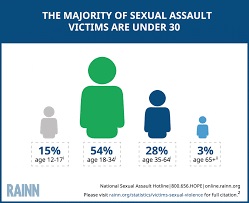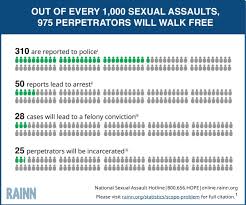UNDERSTANDING SEXUAL ASSAULT

SEXUAL ASSAULT
Sexual assault affects people of all ages, genders, and origins, and it is still a major global concern. There are still a lot of myths about this subject, even in spite of growing advocacy and awareness. In this piece, we hope to clarify sexual assault’s definition, types, effects on survivors, and resources for individuals who may be impacted.
Any unwelcome sexual activity or behaviour directed towards a person without that person’s consent is referred to as sexual assault. It encompasses both words and actions of a sexual nature that violate a person’s autonomy and boundaries23Among them are, but are not restricted to:
- Rape: A violent sexual assault involving penetration without consent.
- Unwanted Sexual Contact: Any non-consensual touching of a person’s body in a sexual manner, even through clothing.
- Threats and Coercion: Using force, threats, manipulation, or coercion to commit sexual violence.
Sexual violence affects people of all genders and ages, occurring in every community. It is essential to raise awareness, support survivors, and work toward prevention and justice.
 Image Courtesy
Image Courtesy
Sexual assault types include:
- acquaintance Sexual assault: When a friend, acquaintance, or intimate partner of the victim is the one who commits the assault.
- Stranger Sexual Assault: Takes place when the victim is not aware of the attacker and frequently entails physical harm or threats.
- Date Rape: This type of sexual assault occurs when the victim is in a romantic relationship or is dating someone.
- Drug-Facilitated Sexual Assault: Involves the use of drugs or alcohol to incapacitate the survivor, making them unable to resist or remember the assault.
- Child Sexual Abuse: Sexual assault perpetrated against children or minors, often by adults in positions of trust or authority.
In my home country Uganda, the prevalence of sexual violence is startling: one in every four women reports that her first sexual experience was rape. Even more troubling, conviction rates for these crimes are low. Only nineteen convictions out of a total of 1,519 cases last year. Despite this, the country has taken steps to stem the tide and hold offenders accountable. Ministry of Health guidelines state that every level four health center should be able to treat survivors of sexual assault. Many level three health centers offer PEP, medical treatment, and connection to legal and psychosocial services.
Despite these encouraging developments, ongoing underfunding and resource shortages force survivors and their families to foot the bill for medical care, including life-saving medication and any out-of-stock supplies. This increases the stigma and shame that many survivors experience, which influences their decision to remain silent. In this situation, more money and support are needed before the aim of abolishing sexual assault impunity can be fully achieved.
Impacts of Sexual Assault:
The effects of sexual assault can be profound and long-lasting, impacting survivors’ physical, emotional, and mental well-being. These may include:
– Physical injuries
– Post-Traumatic Stress Disorder (PTSD)
– Depression and anxiety
– Substance abuse
– Eating disorders
– Self-harm or suicidal ideation
– Relationship difficulties
– Flashbacks or nightmares
Support for Survivors:
It is crucial for survivors to know that they are not alone and that help is available. Some avenues of support include:
- Counseling and therapy: Qualified counselors and therapists can offer survivors private support and direction as they move through the recovery process.
- Support Groups: Connecting with other survivors through participation in support groups can provide a sense of community, validation, and understanding.
- Helplines and Hotlines: A lot of groups operate round-the-clock helplines manned by skilled advocates who may offer advice, information, and connections to nearby resources.
- Legal Support: In order to get protection orders, navigate the criminal justice system, and pursue justice against their offenders, survivors may find it helpful to have legal counsel.
- Medical Care: After a sexual attack, getting medical help is essential for your physical and mental health. Medical practitioners are qualified to treat patients, gather forensic evidence, and provide support service referrals.

In conclusion, sexual assault is a serious violation of one’s autonomy and dignity, with far-reaching consequences for survivors. By raising awareness, challenging harmful attitudes, and providing support to survivors, we can work towards creating safer and more supportive communities for all. It is essential to believe and support survivors, challenge victim-blaming narratives, and actively work towards preventing sexual violence in all its forms.





Responses